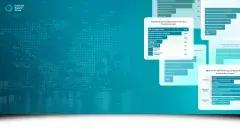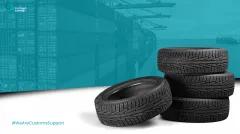You only send the relevant data to us once. We then use this data to create all customs documents and to request any applicable permits. We also take care of all the communication with the relevant authorities. Customs Support’s customs software has links to all the relevant customs authorities (in 7 countries: Belgium, Germany, France, Great-Britain, Italy, The Netherlands and Poland), enabling us to communicate seamlessly on your behalf.
An example: shipping from the UK to Germany, via France and Belgium
For example, you order goods from a supplier in the United Kingdom, which you ship via France to your customs warehouse in Belgium. You then sell part of the goods to your end customer in Germany. You use smart declaring, so you send the relevant data to Customs Support. Customs Support then uses smart declaring to arrange the export of the goods with British Customs. We then arrange the documents needed to transport the goods from the port of entry in France to your warehouse in Belgium. Finally, we arrange the import of the goods shipped to your customer in Germany once the truck collects the goods at your warehouse. This can all happen without any intervention from your side.
Digital Transformation
If you are using manual data entry to send us the data needed for your customs documents, there is room for even more improvement.
Manual data entry is time-consuming, and there is a higher risk for unintended errors. Errors in your data can lead to delays at borders, so it is crucial to minimise these. Digitising data transfer to your customs broker saves time for you and us. Your people can spend their time on value-adding activities instead of manually copying data or data files from one place to another.
Customs Support offers several ways to exchange data with us digitally. Our solutions can deal with all the normal interface protocols available in the market and we communicate in all common languages likes, JSON, XML and CSV. In some cases, we can also do XLS and even PDFs with a consistent layout are interfaceable nowadays. We take your data as the input and convert it to what we need, making things as easy as possible for you.
For more information on the benefits of automated data transfer, read our earlier blog on the benefits of interfacing with your customs broker.














